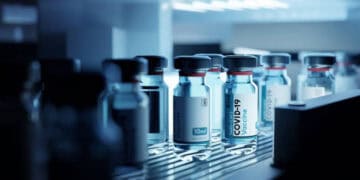The World Trade Organization (WTO) has been at the center of controversy following its announcement on Wednesday that it failed to achieve consensus on waiving patent rights for Covid-19 therapeutics and diagnostic tests. This decision has sparked significant concern among public health advocates who argue that it maintains the pharmaceutical industry’s control over vital Covid-19 resources. Fatima Hassan, the founder of the Health Justice Initiative, expressed disappointment, describing the WTO’s decision as a setback for patient interests in the Global South, which she believes are overlooked in favor of high-income countries’ priorities. Hassan’s remarks underscore the frustration felt by many who see the decision as evidence of a systemic bias within the WTO. The discussion around the WTO’s stance on patents was further inflamed by a Valentine’s Day poem posted on its social media, likening love to a patent.
This post was met with skepticism and criticism by organizations like Public Citizen, a U.S.-based consumer advocacy group, questioning the timing and appropriateness of such a message amidst ongoing debates about access to lifesaving Covid treatments in developing countries. In June 2022, the WTO reached a narrow agreement allowing for compulsory licensing as a means to increase Covid-19 vaccine production without the need for consent from patent holders. This agreement, however, was viewed by many public health campaigners as insufficient. It followed a prolonged push by countries such as India and South Africa for a broader patent waiver to enhance vaccine production and access, particularly in developing countries severely affected by the pandemic.
The WTO had committed to deciding on extending this agreement to include Covid-19 diagnostics and therapeutics within six months, a deadline that has since passed without action. This delay has been attributed to opposition from wealthy countries, including the U.S. and Switzerland. Melinda St. Louis of Public Citizen’s Global Trade Watch criticized the delay and the influence of pharmaceutical companies’ interests over public health priorities. St. Louis highlighted the significant impact of this decision on global health, especially in the context of a U.S. government study from October 2023 that pointed to the ongoing need for Covid-19 treatments. The article reflects ongoing tensions between the need for global access to Covid-19 treatments and the protection of intellectual property rights, illustrating the complex interplay between public health needs and the interests of the pharmaceutical industry within the framework of international trade agreements.
Catch the latest in supply chain news on The Supply Chain Report. Visit ADAMftd.com for free international trade tools.
#WTOControversy #Covid19Access #PublicHealth #PatentWaiver #HealthJustice #PharmaceuticalIndustry #GlobalSouth #ConsumerAdvocacy #CompulsoryLicensing #VaccineEquity #PublicCitizen #HealthRights #GlobalTrade #PharmaInfluence #CovidTherapeutics
















